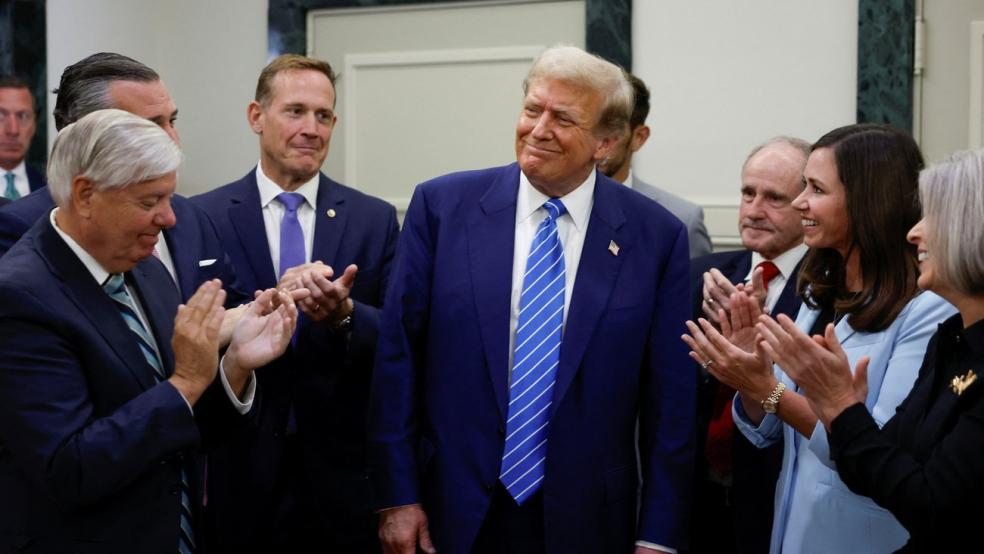Republican presidential nominee Donald Trump and his running mate, Sen. JD Vance, have promised or proposed a bevy of tax cuts and breaks as they campaign for the White House. Together, those plans would cost as much as $10.5 trillion over a decade, according to a new Bloomberg News tally based on preliminary estimates from independent budget analysts.
That’s a staggering sum. Just how big is it? The total would surpass the combined budgets of every domestic federal agency, Bloomberg’s Erik Wasson and Enda Curran write.
“Even if Congress were to eliminate every dollar of non-defense discretionary spending — projected to be $9.8 trillion over the next 10 years — it still wouldn’t offset the estimated expense of the wide-ranging tax cuts Trump and Vance have floated in recent weeks,” Wasson and Curran say. “The combined cost of the Trump plans is so big that if Congress were to try to pass the tax cut proposals and keep spending flat, it means they could continue to fund the military, federal benefit programs, like Social Security, pay interest on the debt — and nothing else.”
The breakdown of what Trump and Vance have proposed is pretty straightforward:
* Extending the expiring 2017 tax cuts would cost $4.6 trillion over 10 years, according to the Congressional Budget Office.
* Lowering the corporate tax rate from 21% to 15% would shave another $874 billion from federal revenues, according to the Committee for a Responsible Federal Budget.
* Raising the child tax credit from $2,000 per child to $5,000 would cost some $3 trillion.
* Exempting Social Security benefits from taxation would cost another $1.8 trillion, while Trump’s “no tax on tips” pledge would trim $250 billion in revenues.
Trump hasn’t laid out many plans to pay for his tax promises beyond higher tariffs, which analysts say would only offset some of the cost — but could also undermine economic growth and spur inflation.
The Republican campaign said in a statement to Bloomberg that Trump would cut wasteful spending and boost energy production to pay for his plans and lower the national debt, but the math there is highly questionable — as is the prospect of Congress passing all the promised tax changes, even if Republicans control both chambers. “Congress is not going to pass a $10 trillion deficit-financed tax cut,” Kyle Pomerleau, a senior fellow with the right-leaning American Enterprise Institute, told Bloomberg.
The bottom line: Take Trump’s tax promises with a big grain of salt, because Congress is unlikely to pass them all.





